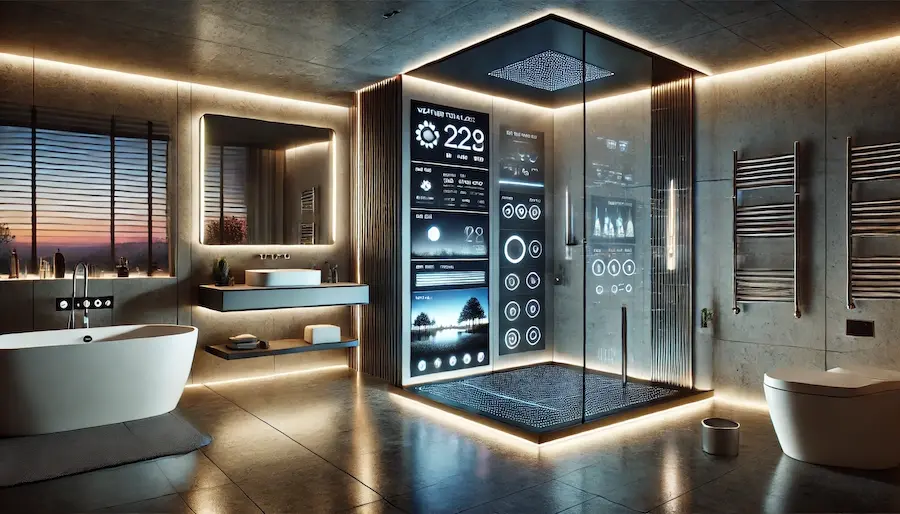Smart bathrooms integrate advanced technology to enhance convenience, efficiency, and comfort, transforming daily routines into seamless experiences. This article explores their key features, applications, and considerations for incorporating smart elements into your bathroom.
Introduction to Smart Bathrooms
A smart bathroom utilizes interconnected devices and innovative technologies to automate and personalize various functions, from temperature control to lighting, aiming to improve user experience and promote sustainability.
Key Features of Smart Bathrooms
Incorporating the following elements can elevate a bathroom into a smart space:
- Smart Showers: Equipped with digital controls, these showers allow users to set precise water temperatures, flow rates, and even program personalized presets for different family members.
- Intelligent Toilets: Features such as automatic flushing, heated seats, bidet functions, and self-cleaning capabilities enhance hygiene and comfort.
- Voice-Activated Lighting and Mirrors: Voice control enables hands-free operation of lighting and mirror functions, including adjusting brightness and activating defoggers.
- Smart Faucets: Touchless faucets with motion sensors reduce water wastage and enhance hygiene by minimizing contact.
- Heated Floors and Towel Racks: Programmable heating systems provide warmth on demand, enhancing comfort during colder months.
- Integrated Entertainment Systems: Bluetooth-enabled speakers and smart displays allow users to enjoy music, news, or podcasts during their bathroom routines.
Applications of Smart Bathrooms
Smart bathroom technologies can be applied in various settings:
- Residential Homes: Upgrading to smart fixtures enhances daily convenience and can increase property value.
- Hotels and Resorts: Offering smart bathroom amenities can elevate guest experiences, providing a competitive edge in the hospitality industry.
- Healthcare Facilities: Smart bathrooms can assist individuals with mobility challenges, promoting independence and safety.
Considerations When Designing a Smart Bathroom
When planning a smart bathroom, consider the following:
- Compatibility: Ensure that all smart devices are compatible with each other and with existing home automation systems.
- Privacy and Security: Protect user data by selecting devices with robust security features to prevent unauthorized access.
- Budget: Smart technologies can vary significantly in cost; prioritize features that offer the most value and align with your needs.
- Maintenance: Regular updates and maintenance are essential to keep smart devices functioning optimally.
Conclusion
Integrating smart technology into your bathroom can significantly enhance functionality, comfort, and efficiency. By carefully selecting and installing appropriate smart features, you can create a modern bathroom that caters to your lifestyle while promoting sustainability and convenience.
